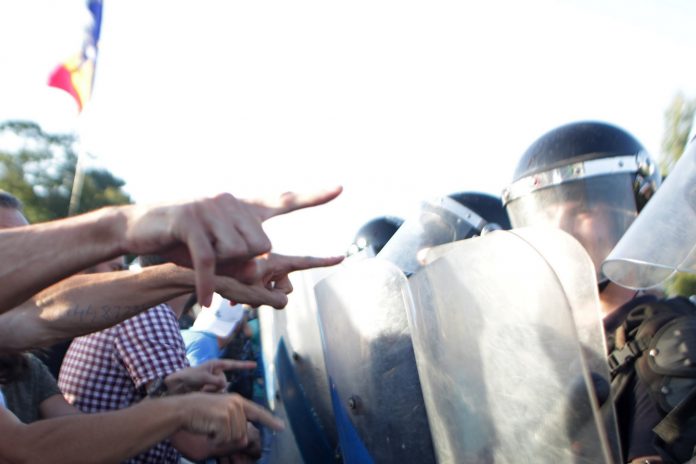As Romania prepares to take the helm of the European Union’s rotating presidency for the first time on 1 January, the country is facing criticism from Brussels about its un-democratic reforms.
The European Commission warned the government in November that it was backtracking on progress made since joining the EU in 2007, while the European Parliament passed a resolution voicing “deep concerns” at legislation that has the potential to weaken the rule of law.
As reported by the Guardian, members of the European Parliament also condemned “the violent and disproportionate intervention by police” in Bucharest in August, when police used water cannons and teargas to disperse anti-corruption protesters.
One proposal being closely watched is an amnesty to protect politicians from prosecution for corruption. Such is the case of Liviu Dragnea, who is considered the most powerful man in Romania.
Dragnea, a businessman-turned-politician, is the leader of the Social Democratic party. But he was barred from becoming prime minister when his party won power in 2016 because of a conviction for vote-rigging.
“Dragnea will be one of the main beneficiaries of the amnesty if adopted,” said Bianca Toma, programme director at the Romanian Centre for European Policies. Even if the amnesty were only in force “for one minute” before being overturned, she said it would still wipe the slate clean for Dragnea and potentially 15,000 others, depending on how the decree was drafted.
“Adopting such a decree on amnesty would be outrageous,” Toma said. “I believe that the civil society would react, the citizens would react, the EU would react, because once this kind of decree is adopted it would be very hard to undo the consequences.”
Meanwhile, the Guardian reported that there was a brief discussion in Brussels about skipping Romania’s presidency and going straight to Finland, which takes its turn in July.
The Agence France-Presse (AFP), noted that European Commission President Jean-Claude Juncker voiced doubts on December 29 about Romania’s ability to take over the EU’s six-month rotating presidency next month, amid tensions between Bucharest and Brussels.
Even if the country is “technically well prepared”, the “Bucharest government has not fully understood what it means to preside over the countries of the EU,” Juncker said in an interview with the newspaper die Welt.
He said the EU presidency “requires a willingness to listen to others and a willingness to put one’s own concerns in the background. I have some doubts about this”.

